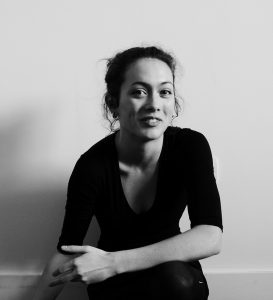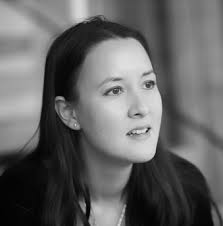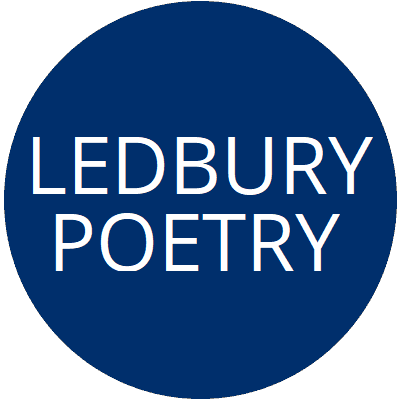Four new mentees join the existing cohort of eight poetry critics: Victoria Adukwei Bulley, Joanna Lee, Stephanie Sy-Quia and Sarah-Jean Zubair
Victoria Adukwei Bulley is a British-born Ghanaian poet, writer and filmmaker. An alumna of the Barbican Young Poets, her work has appeared in The Poetry Review, Ambit, and The Chicago Review, in addition to featuring on BBC Radio 4 Woman’s Hour. In 2016 she was shortlisted for the Brunel International African Poetry Prize. She won a Society of Authors Eric Gregory Award for promising British writers under 30 in 2018, and has held artistic residencies internationally in the US, Brazil, and the V&A Museum in London. Victoria is the director of MOTHER TONGUES, an intergenerational poetry, film and translation project exploring the indigenous language heritages of poets of colour, supported by Arts Council England and Autograph. She is a Complete Works and Instituto Sacatar fellow, and sits on the advisory board of the Poetry Translation Centre. Her debut pamphlet is Girl B.

Joanna Lee writes poetry and prose in London. Her words have appeared in porridge magazine, notes and daikon*. Since graduating, she has worked in publishing — formerly at Faber & Faber and currently at Curtis Brown.

Stephanie Sy-Quia is a writer and critic based between London and the south of France. She grew up in California and France, in a Filipino-European home. Her writing has appeared in the FT Weekend Magazine, The Spectator, The TLS, The Los Angeles Review of Books, The Stockholm Review of Literature, and others. She is interviews editor at Review 31 and in 2018 was shortlisted for the FT Bodley Head essay prize. She graduated from the University of Oxford with a BA in English Language and Literature in 2016. She is currently working on her first book.

Sarah-Jean Zubair is a postgraduate student in English literature at University College London. She holds an MA in English and Comparative Literature from Columbia University (New York), and a BA in English from the University of Victoria (Canada). Her MA thesis investigated the theme of disturbed sleep in the poetry of Samuel Taylor Coleridge. Her current studies focus on literary portrayals of altered consciousness in Romantic-era English texts. In addition to her research, she is the current editor in chief of the graduate research journal Moveable Type, and teaches on undergraduate courses in both the Department of English and Institute of Education at UCL.

New report reveals that when it comes to poetry, literary review
culture is more diverse than ever as schemes to mentor BAME critics ‘spearhead rapid, vital cultural change’ – despite some literary journals remaining overwhelmingly white
A new report published today reveals that poetry reviewing is more diverse than ever, due to the work done in the last two years by initiatives such as the Ledbury Emerging Poetry Critics and The Complete Works, as part of an ongoing fight for an inclusive poetry culture dating much further back.
Through intensive mentoring of new BAME critics and close collaboration with commissioning editors, programmes such as the Ledbury Emerging Poetry Critics which was co-founded by poets Sandeep Parmar and Sarah Howe in 2017, have more than doubled the total number of BAME poetry reviewers writing for national publications in the last two years. Despite this progress, the report also sheds light on the publications which are slow to commission a more diverse range of critics, with the London Review of Books publishing only white poetry critics reviewing white poets throughout the 8 year span of the research.
Sandeep Parmar comments: ‘My sense is that in the long term, critics of colour will find in-roads into every poetry reviewing platform, and editors will be encouraged, by a revived interest in reviewing, to raise the profile of reviewing on their pages….on the whole, the programme has received tremendous support from editors and, where necessary, we will keep reminding those few who have yet to take action.’
The research, The State of Poetry and Poetry Criticism in the UK and Ireland 2011-2018, which was commissioned by the Centre for New and International Writing at the University of Liverpool, draws data from twenty-six magazines and newspapers, including The Guardian, Poetry Review and The London Review of Books from January 2011 – December 2018, examining a total of 4,866 review articles.
The research asked in simple terms – across those 26 publications – whose poetry is reviewed and whose reviews are commissioned and published? By extension it examines how these results relate to poetry prize culture and the diversity of editors steering the publications, in relation to race and gender.
Key statistics from the report include:
• Between 2011 and 2016, British and Irish poetry magazines and newspapers published review articles by BAME critics 130 times, 3.7% of the total for those years.
• Between 2017-2018, in the two years since the launch of the Ledbury Emerging Poetry Critics scheme, BAME critics have been published on the same platforms 115 times, 8.3% of the total for those years.
• Of these 245 articles written by BAME critics, 117 (47.8%) were written by fellows of The Complete Works mentoring programme, the Ledbury Emerging Poetry Critics mentoring programme, or both.
• The London Review of Books has published 70 articles by 33 different poetry critics. All 33 were white. Those 70 articles reviewed 86 different books. All 86 were by white poets. Of those 83% are male.
• At the 2011 census, 12.9% of the UK population identified as BAME. Of the twenty-six magazines in the data set still regularly publishing, five surpassed this figure: Poetry Review (14.5%), Poetry London (18.3%), Oxford Poetry (18.5%), The Poetry School Blog (20.4%) and Modern Poetry in Translation (21.4%).
Emily Berry, Editor of The Poetry Review whose reviews account for 14.5% of those written by BAME critics since 2011, acknowledges the impact of the programme: ‘The high standard of the work produced by the first round of Ledbury Emerging Critics gives the lie to the demeaning notion often trotted out by detractors of diversity schemes that ‘quality suffers’. In fact this scheme has been hugely enriching to poetry reviewing culture overall… reviewing culture urgently needs more of this kind of attention and input if it is to remain alive.’
The publication of today’s report also marks the start of the second round of the Ledbury Emerging Poetry Critics programme, as four new mentees join the existing cohort of eight poetry critics: Victoria Adukwei Bulley, Joanna Lee, Stephanie Sy-Quia and Sarah-Jean Zubair (biographies below). Whilst in the US, a sister programme based on the Ledbury Emerging Poetry Critics model will launch in November 2019 co-ordinated by the poet Ilya Kaminsky with Sandeep Parmar and Sarah Howe.
Ledbury Emerging Poetry Critics co-founder Sarah Howe comments: ‘The immense success of the programme’s first round is a tribute to the hard work of its eight talented participants. Article by article, they are changing the culture…I hope that the gains of the last year or so won’t prove a brief comet, but a more lasting change: ultimately, it’s up to reviews editors to take up that mantle in their ongoing commissioning.’
Read the full The State of Poetry and Poetry Criticism in the UK and Ireland 2011-2018 report here:
The State of Poetry and Poetry Criticism
In 2019, Ledbury Emerging Poetry Critics intends to add another 4 emerging BAME poetry critics to its existing cohort of reviewers, offering them a place on its intensive mentorship programme that focuses specifically on redressing the imbalance in UK poetry culture. The 4 new mentees will be announced in June at a live event (see below) discussing race and reviewing in 2019, alongside the publication of updated statistics on The State of Poetry Criticism.
In tandem with this, a US-based Emerging Critics mentorship programme focused on diversity will pilot in 2019-20. It will be based in Atlanta, on the campus of Georgia Institute of Technology, and supported by US-based poets and poetry organisations. The Academy of American Poets interviews co-founder of the scheme Sandeep Parmar about the American pilot here.
https://poets.org/text/qa-sandeep-parmar-supporting-emerging-critics-color
Ledbury Emerging Poetry Critics
 Sandeep Parmar, co-founder of the scheme says “the tremendous successes of the Ledbury Critics programme has been borne out entirely by the critics themselves through their many brilliantly written, thoughtful and engaged reviews. Swiftly, these initial eight critics are changing how we appreciate poetry in Britain with the sheer strength of their deeply informed and nuanced reading. A door has been opened that will not be shut; it is time to usher in a whole new and diverse generation of critical voices.”
Sandeep Parmar, co-founder of the scheme says “the tremendous successes of the Ledbury Critics programme has been borne out entirely by the critics themselves through their many brilliantly written, thoughtful and engaged reviews. Swiftly, these initial eight critics are changing how we appreciate poetry in Britain with the sheer strength of their deeply informed and nuanced reading. A door has been opened that will not be shut; it is time to usher in a whole new and diverse generation of critical voices.”
 Sarah Howe, co-founder of the scheme says “rapidly earning reputations as essential new critical voices, the first cohort of Ledbury Critics has already begun to reshape the landscape of British poetry reviewing. In reviews that combine analytical nous with hard-won insights, their critical ears are able to pick up on frequencies that once went unheard. So far, the Ledbury Critics’ work has been embraced by a host of editors from literary journals to national broadsheets, whose commitment to nurture and champion such previously overlooked talents shows the way forward. We are grateful to the partners whose support makes this work possible, and look forward to the scheme’s next chapter.”
Sarah Howe, co-founder of the scheme says “rapidly earning reputations as essential new critical voices, the first cohort of Ledbury Critics has already begun to reshape the landscape of British poetry reviewing. In reviews that combine analytical nous with hard-won insights, their critical ears are able to pick up on frequencies that once went unheard. So far, the Ledbury Critics’ work has been embraced by a host of editors from literary journals to national broadsheets, whose commitment to nurture and champion such previously overlooked talents shows the way forward. We are grateful to the partners whose support makes this work possible, and look forward to the scheme’s next chapter.”
The successful national mentoring programme, to encourage diversity in poetry reviewing, returns and will soon announce a second round of new and emerging critical voices
Following the success of its inaugural year-long programme, Ledbury Emerging Poetry Critics, a mentoring programme to encourage diversity in poetry reviewing culture, returns for a second iteration and in April 2019 welcomed applications to join the scheme.
In the past decade, publishing and mentorship schemes targeting BAME poets and writers, new profile-raising festivals and readings, national prize winners and judging panels, as well as crucial cultural debates around race, gender and ethnicity, have dramatically improved the diversity of British poetry. However, reviewing culture has not accurately reflected this important shift towards a more inclusive poetry community of readers and writers. As recent statistics show, reviewers and poets of colour are hugely underrepresented in broadsheet and journal publications, with just 4.9% reviewers and 8.6% poets from BAME backgrounds.
In late 2017, Ledbury Poetry Festival, along with poets Sandeep Parmar and Sarah Howe, launched a year-long intensive mentorship scheme for 8 emerging BAME poetry reviewers: Dzifa Benson, Srishti Krishnamoorthy-Cavell, Mary Jean Chan, Jade Cuttle, Sarala Estruch, Maryam Hessavi, Nasser Hussain and Jennifer Lee-Tsai. Working with collaborating partner publications, during the scheme these 8 critics have published reviews in The Guardian, The Telegraph, The New Statesman, the Times Literary Supplement, Poetry Review, Poetry Wales, Poetry London and many other magazines and journals.
In 2019, Ledbury Emerging Poetry Critics intends to add another 4 emerging BAME poetry critics to its existing cohort of reviewers, offering them a place on its intensive mentorship programme that focuses specifically on redressing the imbalance in UK poetry culture. The 4 new mentees will be announced in May at a live event discussing race and reviewing in 2019, alongside the publication of updated statistics on The State of Poetry Criticism.
Ledbury Emerging Poetry Critics – How to Apply (Deadline for Applications has now passed)
This programme offers an intensive mentoring and support for 4 emerging BAME poetry critics that will focus specifically on redressing the imbalance in UK poetry culture.
Over the course of the Ledbury Emerging Poetry Critics scheme, you will be assigned a poetry critic mentor with experience reviewing for national journals, magazines (print and online) and broadsheet newspapers. You may already be an emerging critic with a few published reviews, have some or no critical or academic background, or you might be strongly committed to becoming a poetry critic in the very near future and keen to explore issues of diversity in British poetry.
The scheme begins with a two-day poetry reviewing workshop in London (end of June, date to be confirmed). This will be followed by one-to-one mentorship and critical feedback on the writing of a poetry review before November 2019 (to be conducted either virtually or in-person). These reviews will be shared with the editors of our collaborating partner publications, which include The Guardian, Poetry Review, Poetry London, Mslexia, Poetry Wales, Magma, The White Review, Sabotage, Prac Crit and others.
TO APPLY send (in hardcopy or a PDF via email) a covering letter expressing your interest and any experience in poetry reviewing. Please tell us why you feel you would benefit from participating in Ledbury Emerging Poetry Critics. Also, send a brief sample review of a recent poetry collection, pamphlet or live poetry performance (by any contemporary poet) of up to 800 words. This review may be published or unpublished. Deadline for applications: Monday 1st April, 2019
Send your applications and/or any preliminary enquiries to:
Dr Sandeep Parmar, Co-Director, Centre for New and International Writing, Department of English, University of Liverpool, 19 Abercromby Square, Liverpool, L69 3BX
Or via email to: Sandeep.parmar@liverpool.ac.uk
Please note that this scheme is unfortunately only open to poets/critics resident in the UK. Travel and accommodation as well as costs associated with mentorship and residency/events are entirely covered.
What the participants say about the Ledbury Emerging Poetry Critics programme:
 “I feel like the programme has given me both validation and visibility, something that every emerging critic / poet needs, and I am so
“I feel like the programme has given me both validation and visibility, something that every emerging critic / poet needs, and I am so

grateful for that. I have wanted to be a freelance poet and critic / arts journalist for many, many years and I feel that, through this scheme, this is at last becoming a reality.” – Sarala Estruch (left)
“The community I have built from this is one of the most valuable things I’ve gained. The mentorship has been invaluable and I have acquired skills (and confidence) that would otherwise have been impossible for me to get access to.” – Maryam Hessavi (right)

